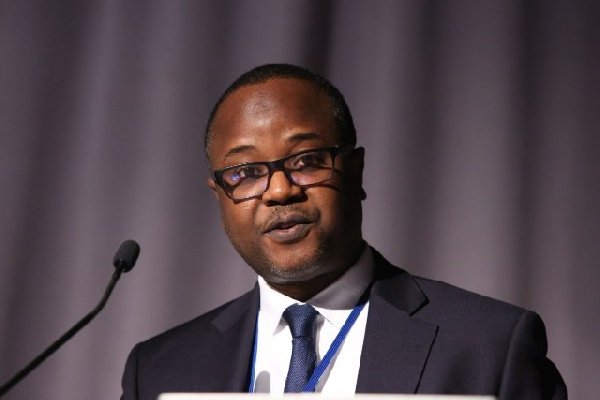The Bank of Ghana (BoG) has warned policymakers against the withdrawal of support measures instituted to address the effects of the Covid-19 pandemic.
According to the First Deputy Governor of Bank of Ghana (BoG), Dr Maxwell Opoku-Afari, this could harm the economic recovery process.
“A careful balancing act between unwinding the policy support would be needed by policymakers, to ensure that stability in a post-pandemic environment is guaranteed,” Dr Opoku-Afari said.
He was speaking at the opening of a two-day workshop on financial literacy for Journalists for Business Advocacy (JBA) at Prampram in the Greater Accra Region on the theme: “Understanding Monetary Policy in a Post Pandemic Era.”
He said the Bank would continue to monitor developments and take the appropriate decisions.
At the height of the Covid-19 pandemic, the government introduced some key innovative policy measures to help contain the negative impact of the pandemic on the citizenry and the economy.
Dr Opoku-Afari said Ghana’s response to the Covid-19 pandemic has been decisive and broad-based, with both the fiscal and monetary authorities implementing complementary measures to tackle the effects of the pandemic.
The government, in particular, adopted a “whatever it takes” stance to minimize the impact of the pandemic, culminating in some GHc21 billion Covid-19-related expenditure in 2020.
To complement the fiscal policy actions, the Bank of Ghana deployed various tools, namely: the interest rate tool, macroprudential policies, market liquidity support, and triggered its emergency financing clause to purchase a Government Covid-19 Bond.
Dr Opoku-Afari said the mix of policies implemented helped to moderate the impact of the pandemic on the economy and contributed significantly to a faster pace of economic recovery than anticipated.
“Ghana managed to record a measured positive growth in 2020 unlike many others that slipped into negative growth rates.
"Amidst the pandemic and surge in inflation, the Central Bank has successfully steered inflation back into the target band, a process that was significantly helped by the extraordinary stability in the foreign exchange market in an election year while foreign exchange reserves level is at a record high,” he said.
He said the economy was entering a new phase of macroeconomic development with low inflation and well-anchored expectations and pledged the Bank of Ghana would pursue prudent policies to safeguard the primary objective of price stability.
On the current inflation targeting regime, Dr Opoku-Afari said transparency is crucial in fostering the credibility of the Central Bank’s policies and called on financial journalists to play a key role in disseminating the Bank’s policies to support the recovery process.
“The Central Bank will continue to implement policies consistent with its inflation-targeting framework to entrench the current low inflation environment,” he added.
Latest Stories
-
GPL 2024/2025: Esso strikes late for Dreams FC against Berekum Chelsea
8 minutes -
Bryan Acheampong will contest NPP presidential slot – Appiah-Kubi hints
13 minutes -
Hohoe United earn promotion to Ghana Premier League
21 minutes -
Swedru All Blacks returns to Ghana Premier League after 16-year absence
36 minutes -
UTAG-UEW demands thorough investigation into gruesome murder of colleague
1 hour -
GPL 2024/25: Aduana Stars demolish Legon Cities 4-0
1 hour -
GPL 2024/25: Vision FC clinch crucial win over Karela United
2 hours -
AfroCuration Ghana 2025 unites 7 Ghanaian languages to promote African identity on Wikipedia
2 hours -
GPL 2024/205: Bechem United held to goalless draw by Basake Holy Stars
2 hours -
GPL 2024/25: Bibiani GoldStars hold Asante Kotoko in goalless stalemate
2 hours -
Africa Day: Injustice and inequalities affect Africans, people of black descent – UN Secretary-General
2 hours -
Western Regional Minister orders action to halt encroachment on Ghana Water Company lands at Daboase
3 hours -
Free speech should not be criminalised – GJA urges
3 hours -
Ghana to export nurses and teachers to work in Jamaica under new agreement
4 hours -
Sky Agro, Intraco train poultry farmers on feed use to curb losses
5 hours

